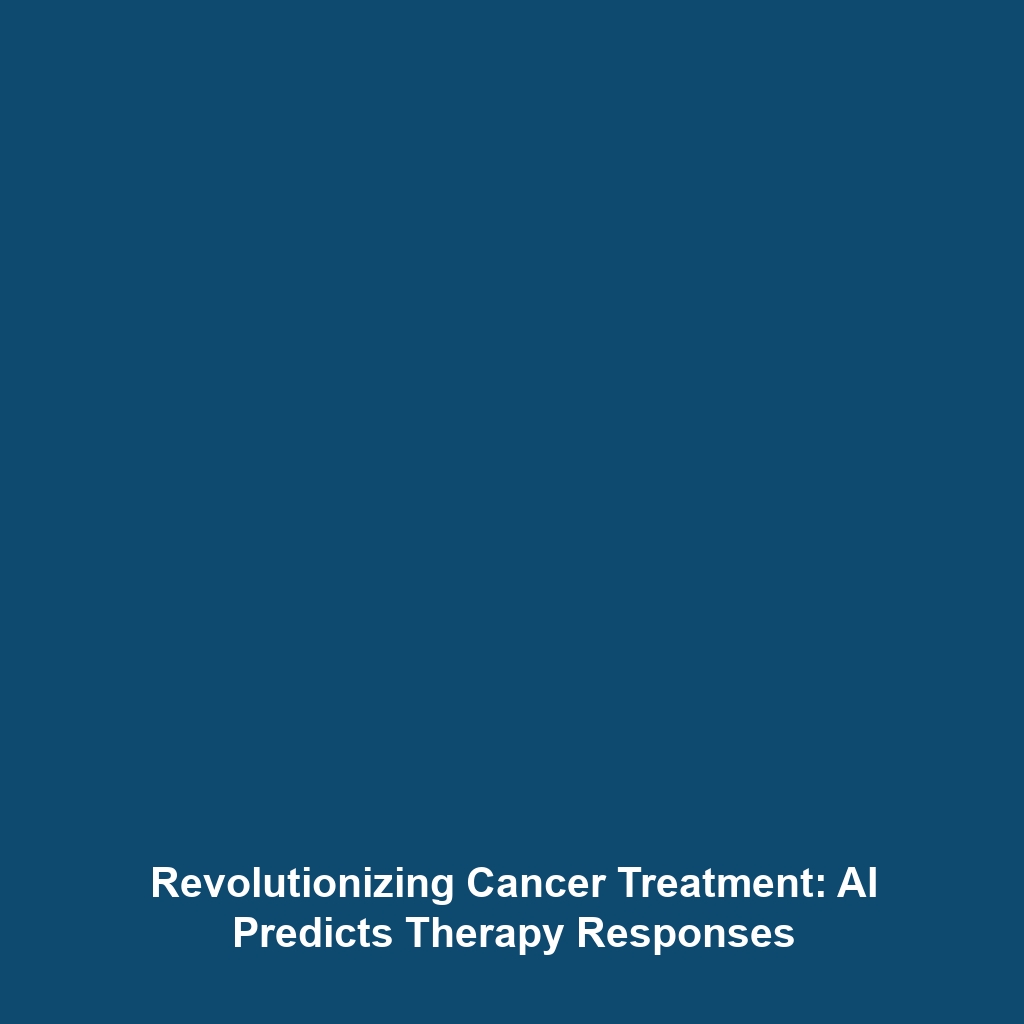AI’s Role in Predicting Responses to Chemotherapy and Immunotherapy
Introduction
Artificial Intelligence (AI) has emerged as a transformative force in healthcare, particularly in predicting patient responses to chemotherapy and immunotherapy. By analyzing vast datasets, AI technologies can identify patterns and make accurate predictions that significantly influence treatment decisions and outcomes. The significance of AI in healthcare extends to personalized medicine, where tailored therapies based on predictive analytics improve efficacy and minimize adverse effects. This article delves into the critical role of AI in predicting chemotherapy and immunotherapy responses, exploring its implications for healthcare advancements.
Key Concepts
Understanding Predictive Analytics in Cancer Treatment
Predictive analytics refers to the use of statistical algorithms and machine learning techniques to identify the likelihood of future outcomes based on historical data. In the context of cancer treatment, AI can analyze genetic information, tumor characteristics, and previous treatment responses to predict how individual patients may respond to chemotherapy and immunotherapy.
AI Algorithms and Methodologies
Several AI methodologies are employed to enhance predictive capabilities:
- Machine Learning: Algorithms learn from data to improve predictions over time.
- Natural Language Processing: Helps in analyzing clinical notes and research papers for relevant data.
- Deep Learning: Models complex patterns within large datasets, particularly useful in imaging and genomics.
Applications and Real-World Uses
AI’s role in predicting responses to chemotherapy and immunotherapy has resulted in numerous practical applications in healthcare, including:
- Personalized Treatment Plans: AI systems can suggest tailored treatment protocols based on predicted efficacy for individual patients.
- Clinical Trial Optimization: AI helps identify suitable candidates for clinical trials, improving the likelihood of successful outcomes.
- Real-time Monitoring: Machine learning models can analyze ongoing treatment data to make adjustments in real-time, enhancing patient management.
These applications exemplify how AI is used in healthcare to improve cancer treatment strategies significantly.
Current Challenges
Despite the advancements, several challenges persist in applying AI to predict responses to chemotherapy and immunotherapy:
- Data Quality: Inconsistent or incomplete datasets can lead to inaccurate predictions.
- Regulatory Hurdles: Navigating the regulatory landscape can slow down the adoption of AI technologies.
- Ethical Concerns: Issues surrounding patient privacy and data security need careful consideration.
Future Research and Innovations
The future of AI in predicting responses to chemotherapy and immunotherapy is promising. Ongoing research focuses on:
- Next-Generation Sequencing: Enhancing genomic data analysis for improved predictions.
- Integration of Multi-Omics: Combining data from genomics, proteomics, and metabolomics for comprehensive insights.
- Development of Explainable AI: Creating models that provide transparent reasoning behind predictions to increase trust among healthcare providers.
These innovations are set to improve patient outcomes and redefine treatment landscapes in oncology.
Conclusion
In summary, AI plays a crucial role in predicting responses to chemotherapy and immunotherapy, marking a significant advancement within AI in healthcare. As predictive analytics becomes more integrated into clinical practices, it promises enhanced treatment personalization and improved patient management. To learn more about AI’s potential in healthcare, explore our articles on innovations in AI and personalized medicine strategies.
